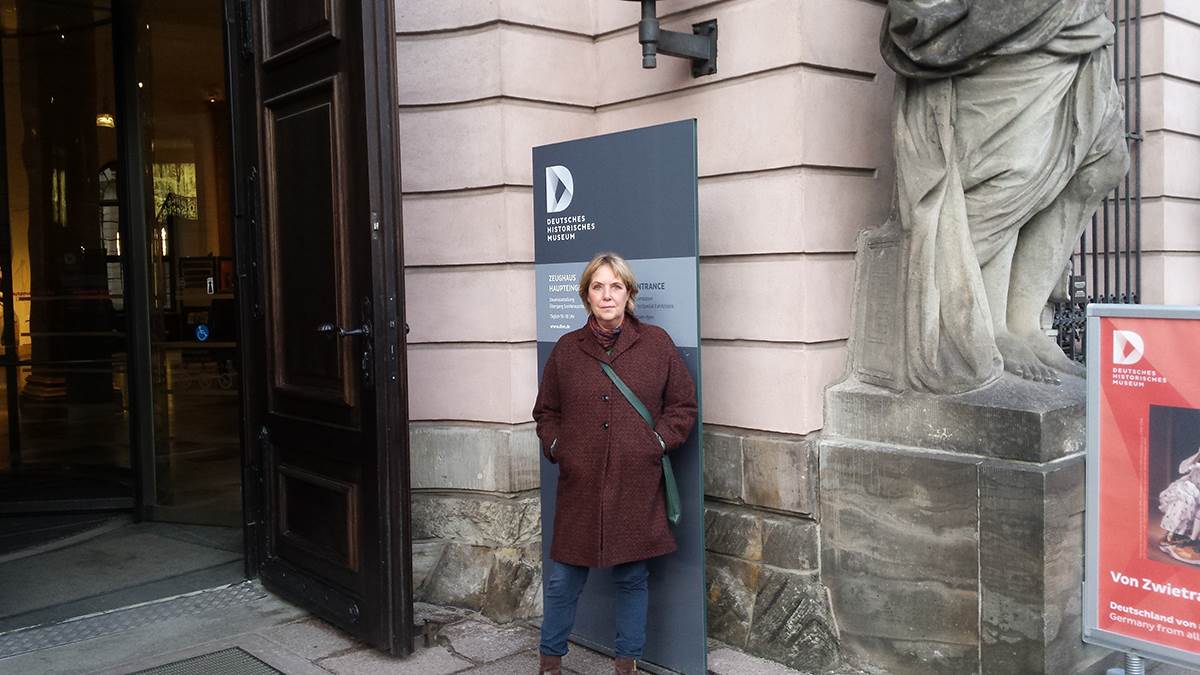My inspiration for A Berlin Love Song: The forgotten holocaust, the Persecution of Roma and Sinti in the Third Reich - Sarah Matthias
Published on: 04 April 2017 Author: Sarah Matthias
When I was a child growing up in Yorkshire, our next-door neighbours were German Jewish refugees who had fled to England during the war. Mr Adler had been imprisoned in a concentration camp. He was a dentist - a proud, kindly man.

He didn't talk about his wartime experiences much, but when he did, he used to shake and cry. This had a profound effect on me as a child; seeing an adult who I respected reduced to tears by memories of his past.
My father was in the RAF during WW2, and my father-in-law fought at the pivotal battle of El Alamein, so I have always been surrounded by tales of 'real-life' wartime experiences. As a lover of history, these tales gave me a life-long fascination with this period.
In 2011, on one of my many visits to Berlin, I happened upon an exhibition in the Deutsches Historisches Museum entitled Hitler and the Germans: Nation and Crime. It explored the relationship between Hitler and the German Nation, addressing the question of how Hitler had managed to seduce an entire country.
I was already well aware of the Nazi concentration camps, not least since the mother of one of my close friends had been imprisoned in Auschwitz, as a Polish Catholic involved in the Resistance. However, I had not heard much about the fate of the Roma and Sinti of Europe. In one small corner of the exhibition, I found a few exhibits dedicated to the wartime persecution of the Romani people.
I discovered that, in addition to six million Jews, up to half a million Roma and Sinti had been exterminated by the Nazis and I wondered why relatively little had been written about this.
On my return to London I went to the permanent Holocaust exhibition in the Imperial War Museum, where I found another small corner dedicated to the Romani story, but again, not very much. I set about discovering all I could about the persecution of the Roma.
I was profoundly moved by what I read, and also concerned that so little attention had been paid to the genocide of a people targeted for extermination on racial grounds in Hitler's Final Solution. It was not long afterwards, in October 2012, that I read about the long-awaited memorial to the Roma and Sinti that had just been opened by Angela Merkel in the Tiergarten park in Berlin.
Speaking just before the opening ceremony, she delivered a moving tribute to the victims. "Every single fate in this genocide," she said, "fills me with sorrow and shame."
I visited the memorial to the Roma and Sinti in Berlin. I visited Auschwitz. Whilst in Auschwitz I found a book in a series, Voices of Memory, entitled Roma in Auschwitz, full of first-hand memoirs and testimonies from victims. Published in the hope that this 'forgotten holocaust', as the genocide of the European Sinti and Roma is often called, would never be repeated, the heart-rending stories gave me the germ of an idea for my novel A Berlin Love Song.
Max is 14, a German schoolboy, when he first meets Lili, a trapeze artist from a travelling circus that performs every year in Berlin. Lili is Romani, and her life and customs are very different from those of Max and his family. Torn apart by the outbreak of war they meet again aged 17, when their friendship turns into love - but love between a member of the Hitler youth and a member of the Romani community is forbidden. Set against the background of the Second World War, A Berlin Love Song is a love story of passion, unexpected friendship, despair, loss and hope.





